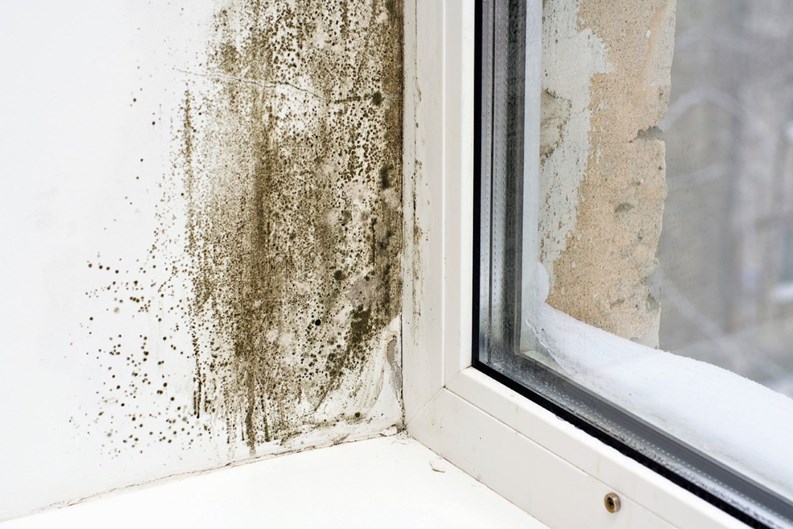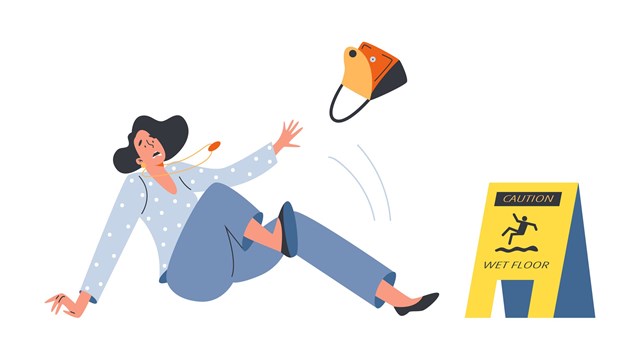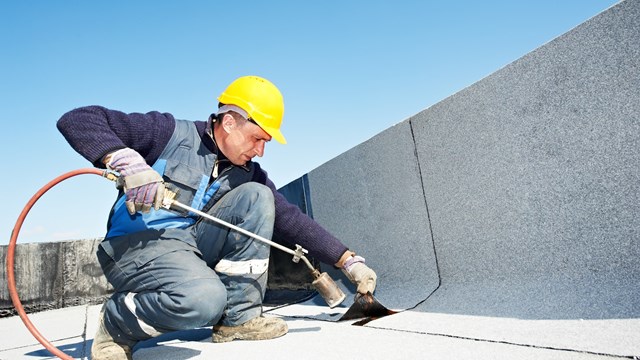Mold—it’s an ugly four-letter word in more ways than one. Nobody wants to think about the fact that this fungus can be found anywhere where water leaks or drainage problems are present. Mold can cause serious damage to a co-op or condominium, like ruining drywall, and is believed to trigger numerous health problems in susceptible persons.
But when your home is contaminated by mold, and you just want it to go away, who pays for the damage and the cleanup? Is it the responsibility of the homeowner? Is it the cooperative board or condo association’s responsibility? Is it the next door neighbors’ responsibility if the water came from their unit and damaged yours? The answer to all of these questions is…it depends.
The co-op's umbrella or condo association's master policy, as well as the various governing documents, spell out what parts of the complex are covered and what parts are the shareholder or unit owner’s responsibility. Typically most insurance covers the co-op or condo building, any common property such as hallways, lobbies and shared terraces, etc., as well as liability insurance for the board and association. Whenever any kind of moisture is introduced into a building structure—prewar or brand-spanking-new—whether in the form of a major flooding event or just a minor leak, it brings with it the possibility of mold infiltration and all its attendant risk to property and health. Even if you have full homeowners and flood insurance, mold-related damage may not be included in your coverage.
To tackle mold from the bottom up, an ounce of prevention is worth a pound of cure, and being one step ahead of the nasty but nearly ubiquitous stuff is really the only defense against it—the longer you wait to deal with a mold issue, the more it may cost to correct it, and the less pity your insurance carrier is likely have for you.
Mold Exposure
Whatever the root cause, mold damage can be devastating. While the data isn’t definitive, strong anecdotal evidence suggests that mold spores in a home can contribute to a broad range of health issues, including eye irritation, congestion, asthma and other respiratory distress, skin rashes, and even mood and behavior problems, particularly in young children. Getting rid of mold can be a lengthy, expensive process—and standard homeowners insurance policies don’t always foot the bill.
And the stuff can come from almost anywhere. “In the indoor environment we live in, there are lots of food sources for mold,” says Garry Alexander of Belfor USA, a nationwide disaster restoration company and property recovery services provider. “[Mold thrives on] sheet rock, paint, wall coverings and even the glue used to adhere them.”
Alexander says that when you look at things that way—and understand that a residential building, with all its various layers and crevices is basically heaven for mold—there’s really only one tactic to take: dry it out. “The only thing we can control is moisture; in that context, mold is essentially a function of water. So things like leaky windows or window air conditioning units, roof leaks, and pipe leaks are many of the common causes of mold problems.” Alexander notes that if there is prior water damage that wasn’t dealt with properly, mold can cause problems there, too.
The Insurance 411
“An important thing for building owners to consider when insuring their buildings is to opt for [mold] coverage at the time the policy is written,” says Brett Lipton, president and CTO/CIO of Manhattan-based Castle Rock Insurance Agency. “Many think the importance of an insurance policy lies in the amount of coverage, not the type of coverage. If you insure a 100-unit apartment building with $10,000,000 of property coverage and $10,000,000 in liability coverage but have a mold exclusion, a class action mold claim of $5,000,000 is immaterial to the carrier, because they are not paying it; the responsibility will invariably fall on the building owner. If a building owner is looking to fix a mold problem, a good solution would be to hire a licensed and insured mold remediation company that has proper general liability, professional liability and pollution liability coverages.”
The other bad news in terms of insurance for mold is that while mold is seen by many contractors as more or less a fact of life, it's considered a preventable problem by most insurance carriers.
“On a standard HO-3, or homeowners insurance policy, mold is specifically excluded,” Lipton continues. “The policy contract will state that they will not cover ‘loss caused by smog, rust, mold, wet or dry rot…’ The reason for this is that most insurance policies cover incidents or occurrences—and mold is [considered] neither an incident nor an occurrence, so it is excluded. Mold is a condition that arises from neglect, though it could be neglect from an incident or occurrence, like a flood or a leak. However, the policy also states that the insured has an obligation to prevent the furthering of damage after an occurrence or incident, and failure to do so in the aforementioned situations would result in mold. It is therefore considered a result of negligence.”
And that negligence can cause trouble for residents. Several years ago, there was a flurry of articles in the press regarding homeowner’s insurance claims for mold—and even more after Hurricane Katrina, which elevated mold damage from troublesome to disastrous. According to Alexander, state insurance departments started allowing insurers to eliminate coverage for mold as a result of countless claims flooding the industry.
“If a particular risk, like mold for example, becomes detrimental to the industry—though I don’t know how they determine that—the state insurance department will allow insurers to write it out of their policies,” says Alexander. “In some cases, you can buy back the coverage for an added fee. In states like Texas and Florida, the industry was getting hammered by mold claims so their state insurance departments allowed insurers to eliminate coverage for it, and most states have done this. In New York, some insurers have petitioned the state insurance department to eliminate coverage; some have not, but for those that have eliminated coverage, you can buy it back in many cases.”
Alexander notes however, that mold on its own is rarely enough for a claim. “The only way it is covered for those companies that haven’t eliminated coverage is if it is the result of an insurable loss,” he says. “Mold, in and of itself, is not covered; it’s only covered if it occurs from an insurable loss, like a broken pipe.”
On Your Own, But Not Alone
The good news is that even though insurers are pretty strict about mold coverage (or lack thereof) there are ways to avoid a messy—or denied—claim in the first place.
If you’re concerned that there may be a mold problem in your building, it’s better to be safe than sorry. Some mold can be seen with the naked eye, but some mold is airborne and undetectable without specialized equipment.
Envirospect, an environmental testing and remediation agency based in Nesconset, holds that if you suspect mold, you’re probably onto something, and that calling in a professional is the next step if you want to get to the root of the problem. According to company president Robert Madarasz, “An exterior inspection is required if there's an indeterminate means of water penetration. If water penetration is allowed to continue, any remedial action will fail because conditions still exist to promote accelerated mold growth.”
Madarasz suggests a floor-to-ceiling approach that involves more than just a cursory look at the mold already present. "Air duct cleaning is essential as part of any mold remediation project,” he says. “Cross contamination into an HVAC system can already have occurred even before a qualified mold remediation company has responded.” Madarasz adds that a qualified professional should have all their licenses, certifications, and associations ready for you to check out: “The air duct cleaning contractor should be a member of National Air Duct Cleaners Association (NADCA), with certified Air Systems Cleaning Specialists (ASCS) on staff. The air duct cleaning should meet NADCA standards, including the application of an EPA registered anti microbial into the HVAC system after a thorough cleaning has been performed."
According to the OSHA website: “Industrial hygienists or other environmental health and safety professionals with experience performing microbial investigations and/or mold remediation should be consulted prior to remediation activities to provide oversight for the project.” The consensus seems to be that when it comes to mold, you’re going to need a hand.
The Wrong Way To Do It
If calling in for professional assistance before mold gets to be a huge problem is the right way, there’s a wrong way to deal with mold issues, too. “Some people panic at the thought of mold, but if you have no health reactions to it—and most of us don’t—just use common sense,” says Alexander. “Try to isolate it, keep away those with compromised health problems or known reactions. Years ago, I was looking at an infested basement with the homeowner and while standing in the basement that was covered in mold, she mentioned to me that she had asthma and one of the triggers was mold. I kicked her out of her own basement—in an appropriate way, of course. The opposite reaction exists too; some people will panic at a little spot of mold on a wall.”
Alexander says that the people who panic can cause almost as much damage as, say, Stachybotrys chartarum, a common type of toxic mold. (Note: “Toxic mold” is a bit of a misnomer, since the mold itself is not toxic. The mycotoxins, natural chemicals the mold has developed to kill other molds, and prevent them from stealing its space is the toxic stuff.)
“Part of the problem with condos and co-ops is getting everyone on the same page, both management and the unit owners,” says Alexander. “Management, since they can wind up with the majority of the bill, wants to minimize [labor, preventative costs] and the unit owner wants to maximize [that]. Usually, the use of a qualified hygienist can guide everyone through the process as long as both parties agree to that beforehand. Unfortunately, what sometimes happens is one party doesn’t like what the hygienist has to say or there’s an air of mistrust and they go out and get their own to counter the other and it becomes a nightmare” he says. “Getting the right firm to begin with can be key in settling matters appropriately. All that should matter is getting the indoor environment back to a healthy one—anything else is irrelevant.”
Mary Fons is a freelance writer living in Chicago and a frequent contributor to The Cooperator.










7 Comments
Leave a Comment